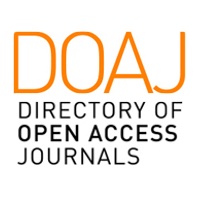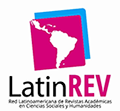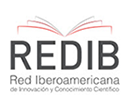Processos de construção da autonomia docente: Análise do planejamento de uma abordagem temática com professores de Ciências da Educação Básica
DOI:
https://doi.org/10.31639/rbpfp.v9i17.150Keywords:
Teachers autonomy, Small research group, Science teachers education]Abstract
This article presents the description of the process of joint construction of conceptual knowledge and the development of characteristics of teacher autonomy by teachers participating in a Small Research Group (PGP) at the school. In order to analyze the dialogues obtained through audio recording of meetings of this group, we focus mainly on the references about the teachers autonomy in groups of teachers, and references about science teachers education. These analyzes were made by groupings of categories and its systematized the conceptual contents and the elements of the teaching autonomy developed, jointly by the teachers, in the joint planning process. It was possible to identify moments in which teachers understand the theoreti-cal elements of the theme-issue that was in debated, and still situations in which the constitution of initial elements of teacher autonomy can be affirmed. Thus, we point to the potential of the formation of research groups by teachers in the school in the elaboration of conceptual knowledge and in the construction of the autonomy of the teachers.
Downloads
References
BASTOS, F.; NARDI, R. Debates recentes sobre formação de professores: considerações sobre contribuições da pesquisa acadêmica. In: BASTOS, F.; NARDI, R. (Org.). Formação de professores e práticas pedagógicas no ensino de ciências: contribuições da pesquisa na área. Série Educação para a Ciência, vol.8. São Paulo: Escrituras, 2008.
CAMPOS, L.; DINIZ, R. E.S.; A prática como fonte de aprendizagem e o saber da experiência: o que dizem professores de Ciências e de Biologia. Investigações em Ensino de Ciências, v. 6, n. 1, p. 79-96, 2016.
CARVALHO. A. M. P; GIL-PEREZ, D. Formação de professores de ciências: tendências e inovações. São Paulo: Cortez, v.26. 1993
CORZO, M. C; QUINTANA, Z. B. S.; YUNCOSA, N. L. M. Comunidades de aprendizaje: un espacio para la interacción entre la universidad y la escuela. Revista de teoría y didáctica de las ciencias sociales, v. 13, p. 9-28, 2008.
CONTRERAS, J. D. A autonomia de professores. Tradução: Sandra Trabucco Valenzuela. São Paulo: Cortez, 2002.
FIORENTINI, D. Investigar e aprender em comunidades colaborativas de docentes da escola e da universidade.
In: TOMMASIELLO et. Al. Didática e Práticas de Ensino na Realidade Escolar Contemporânea: constatações, análises e proposições. Araraquara: Junqueira & Marin Editores, 2012.
GIROUX, H. Os professores como intelectuais: rumo a uma pedagogia crítica da aprendizagem. Tradução Daniel Bueno. Porto Alegre: Artmed, 1997.
KEMMIS, S. La formación del profesor y la creación y extensión de comunidades críticas de profesores.
Revista Investigación en la Escuela, n. 19, p. 15-38, 1993.
LOPES, N. C. A constituição de associações livres e o trabalho com as questões sócio-científicas na for-mação de professores. 2013. 389 f. Tese (Doutorado em Educação para a Ciência). Faculdade de Ciências,
Universidade Estadual Paulista, Bauru, 2013.
MARTÍNEZ, L.; PARGA, D. Formación permanente de profesores en la interfaz universidad-escuela: currículo, fundamentos y roles. Una experiencia en construcción. Fondo Editorial, 2014.
PIMENTA, S.; GARRIDO, E.; MOURA, M. O. Pesquisa colaborativa na escola facilitando o desenvolvimento profissional de professores. Reunião Anual da Anped, v. 24, p. 1-21, 2001.
SABINO, A.; PIETROCOLA, M. Saberes docentes desenvolvidos por professores do ensino médio: um estudo de caso com a inserção da física moderna. Investigações em Ensino de Ciências, v. 21, n. 2, p. 200, 2016.
Downloads
Published
How to Cite
Issue
Section
License
Copyright belongs exclusively to the authors. The license rights used by the journal are the Creative Commons Attribution-NonCommercial 4.0 International (CC BY-NC-SA 4.0) license: sharing (copying and distribution of material in any medium or format) and adaptation (remixing), transformation and creation of material from the content are allowed.































